3 October 1778 Saturday
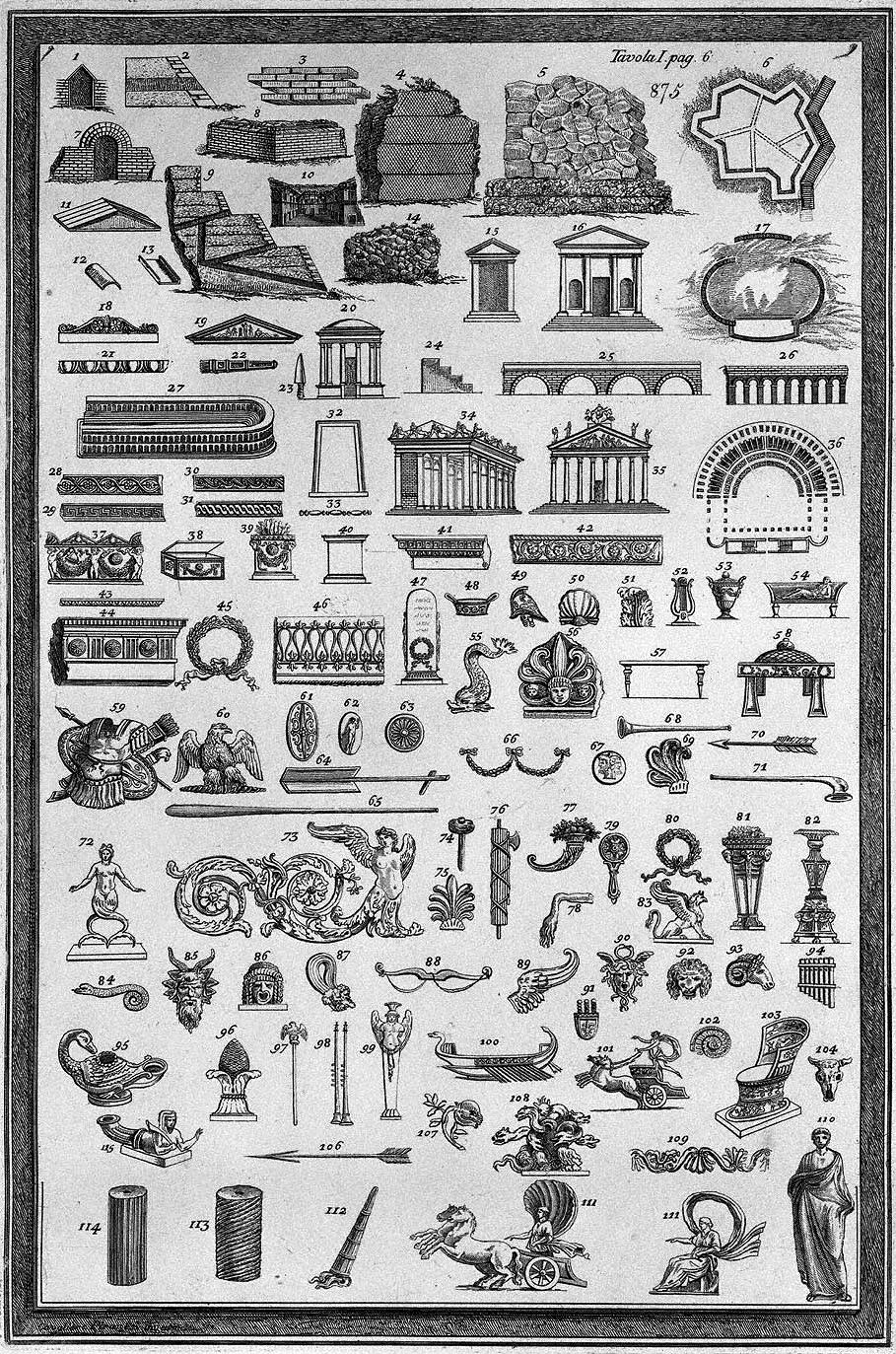
27. A circus surrounded with porticos.
47 y.o. Francesco Piranesi 1805
Le Antichità della Magna Grecia Parte III
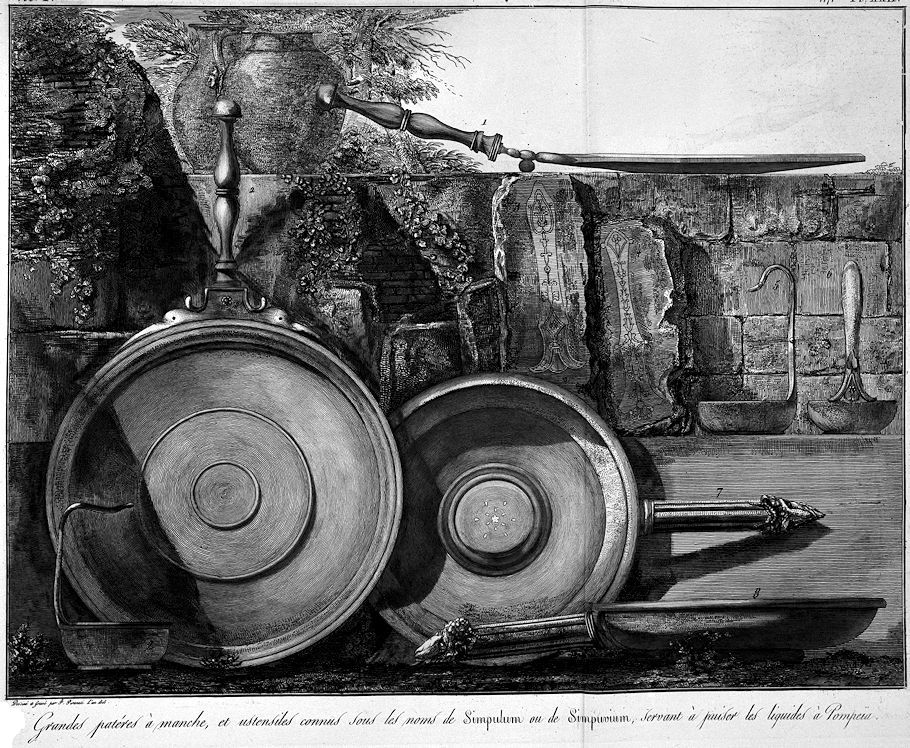
Large hooks with handles, and utensils known under the names of Simpulum or Simpuvium, used to draw liquids in Pompeii.
Drawn and Engraved by F. Piranesi Year 1805
3 October 1812 Saturday
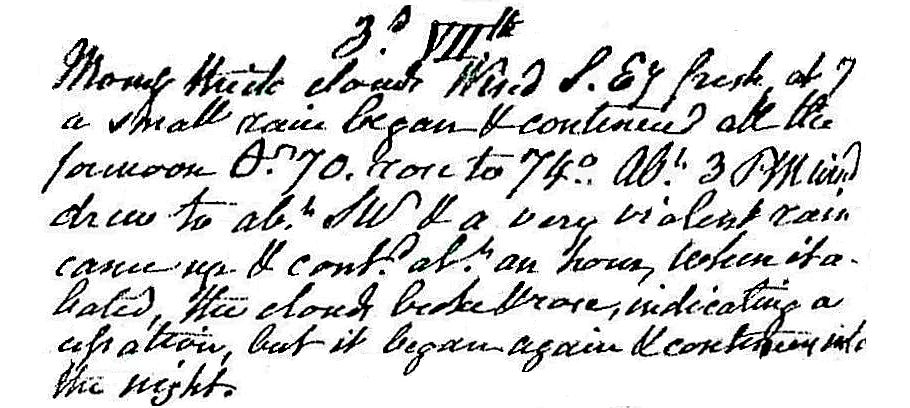
Morning thick clouds, wind S easterly, fresh at 7. A small rain began and continued all the forenoon. Temperature 70 rose to 74°. About 3 PM wind drew to about SW and a very violent rain came up and continued about an hour. When it abated the clouds broke and rose, indicating a cessation, but it began again and continued into the night.
3 October 2017
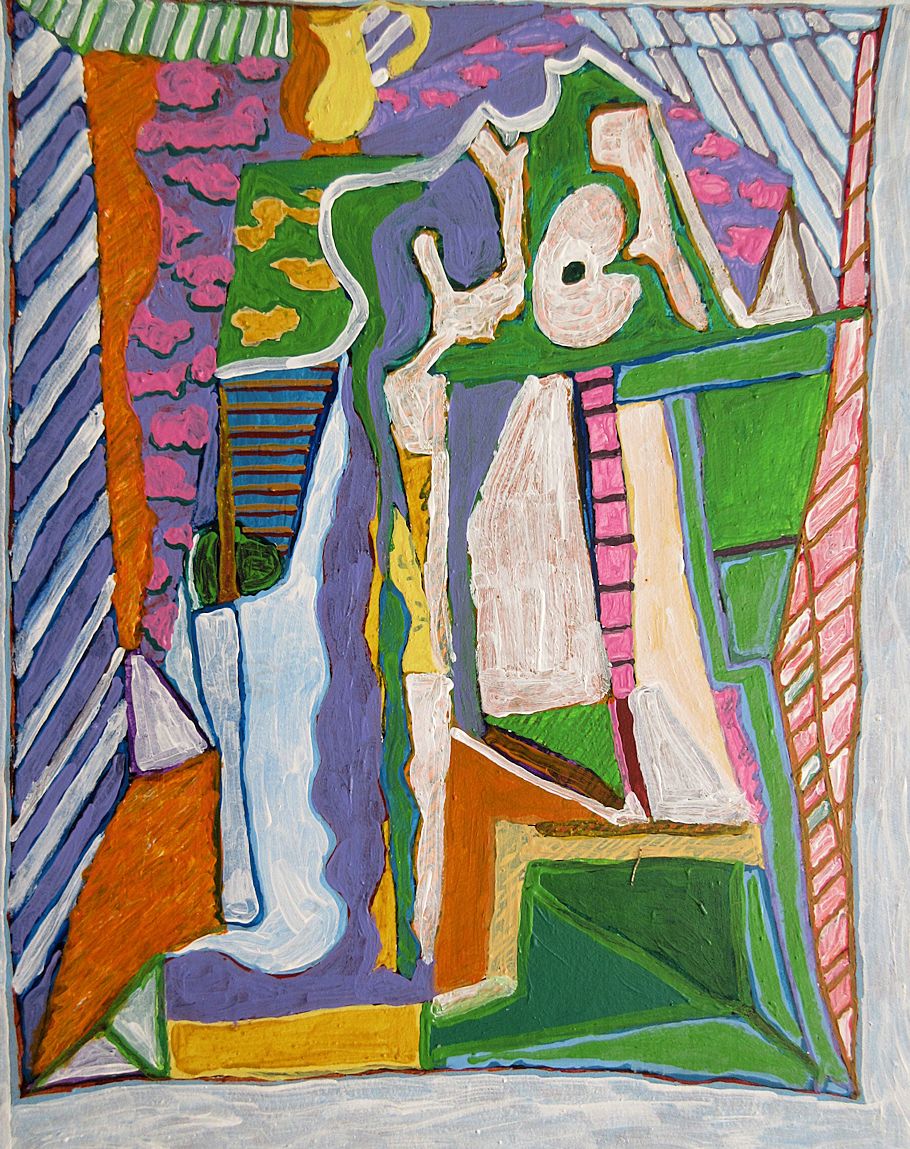
3 October 2019
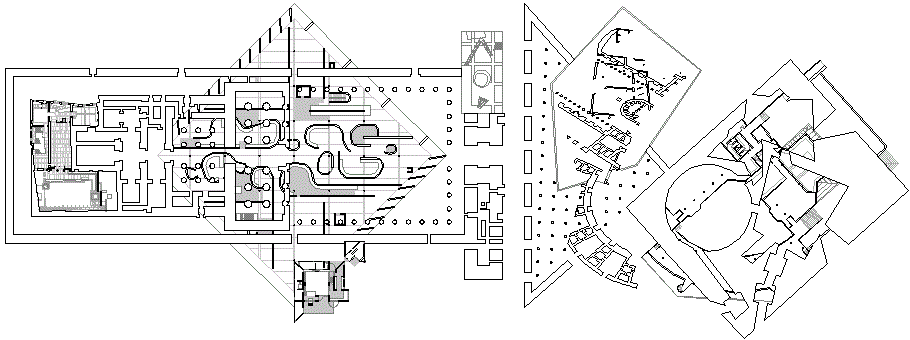
Contamination 002
3 October 2022 Monday
I'm becoming more and more dismayed at Heather Hyde Minor's portrayal of Francesco Piranesi as the major villain of Piranesi's Lost Words.
Also:
"Her father also taught her [Laura Piranesi] how to be wily, an ability she did continue to practice after leaving his house in 1778. . . . She passed this inheritance on to her own daughter, who fought fiercely for the return of her grandfather's copperplates when they were stolen by marauding Neapolitan troops in 1799."
Heather Hyde Minor, Piranesi's Lost Words (University Park, PA: The Pennsylvania State University Press, 2015), p. 183.
The above appears to be a great deal of misinformation because:
"At length finding his own position uncongenial, Francesco Piranesi, towards the middle of 1798, packed up the copper plates of his father's etchings and his working tools as a craftsman, and transferred his energies to Paris, going thither by sea. During the voyage the ship fell in with and was captured by a squadron under Sir Thomas Troubridge, which had become detached from Lord St. Vincent's fleet. Nelson was then at Naples on the Vanguard, and British ships were actively employed in that part of the Mediterranean in blockading ports so as to prevent supplies reaching the French troops. The captured ship containing Piranesi's property was an armed French brig laden for the most part with spoil taken by the French from the Italians. The name of Giovanni Piranesi and the fame of his etchings were evidently known to Admiral Troubridge, for he felt respect for the etchings sufficient to cause him to persuade the officers and men who had effected the capture to restore the copper plates to the son of the etcher. He further obtained from the French Government the concession that these plates should be admitted into France free of duty, and that Francesco Piranesi should be protected in his future possession of them. After Troubridge had succeeded in making these arrangements, Francesco came on board the Admiral's ship and received back his property. At the same time he presented to Troubridge a complete set of impressions."
Arthur Samuel, Piranesi (New York: Charles Scribner's Sons, 1910), pp. 164-6.
3 October 2023 Tuesday
I did get emotional tonight, but it was only for a minute or so--perhaps a tiny glimpse of what's to come.
|